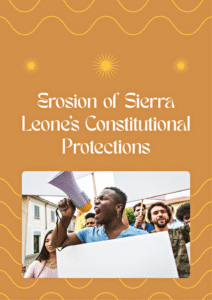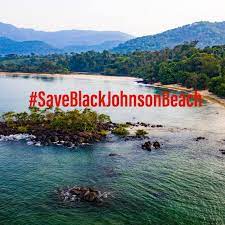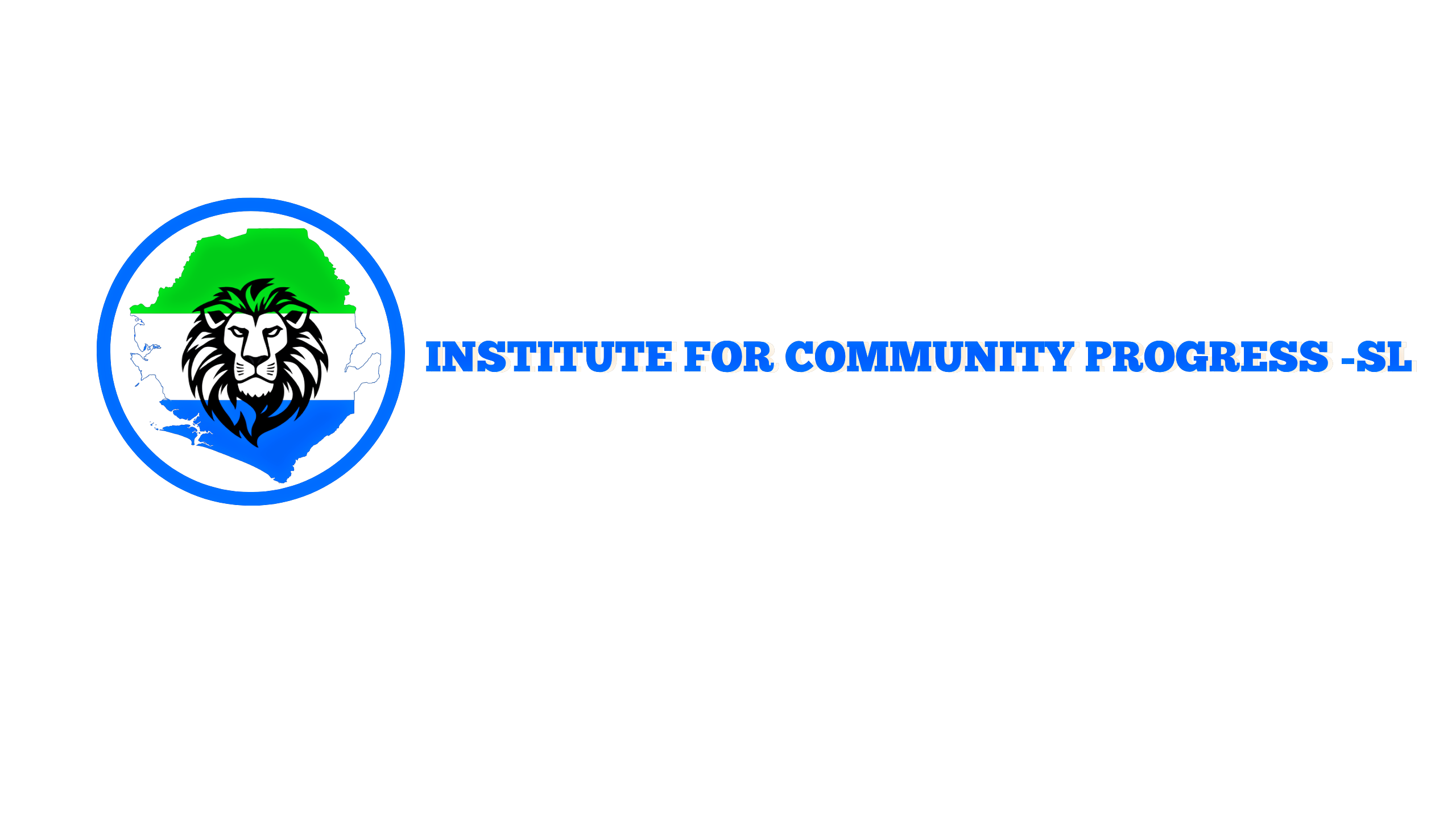Sierra Leone’s 1991 Constitution enshrined vital protections—Parliamentary independence, integrity of constitutional offices, and citizen sovereignty—under Section 108. However, recent events show a pattern of deliberate regression. From legislative manipulation to the commodification of citizenship and land, these rollbacks have enabled elite enrichment and entrenched exploitation. This article explores the diverse erosion and the essential steps to reverse it.
 Since 2018, the regime has severely undermined constitutional safeguards. Over the years since 2018, there have been significant constitutional abuses in Sierra Leone. Section 108 of the constitution, for example, is clear about voting requiring a two-thirds majority of all members of parliament, not just those present in the well of Parliament. Section 108 safeguards key democratic pillars that call for a two-thirds parliamentary majority and a national referendum for any amendments. Manipulation of the Speaker’s election, which saw only the members present in the well of parliament vote (2018), and the appointment of a new Speaker without quorum, violated Section 79(1) and conflicted with the spirit of Section 108. The dismissal of Auditor General Lara Taylor Pearce in 2021, without following proper Parliamentary procedures and in breach of Section 108, constituted an abuse of an entrenched constitutional clause and weakened financial oversight, thereby undermining Sections 119, 137, and 108.
Since 2018, the regime has severely undermined constitutional safeguards. Over the years since 2018, there have been significant constitutional abuses in Sierra Leone. Section 108 of the constitution, for example, is clear about voting requiring a two-thirds majority of all members of parliament, not just those present in the well of Parliament. Section 108 safeguards key democratic pillars that call for a two-thirds parliamentary majority and a national referendum for any amendments. Manipulation of the Speaker’s election, which saw only the members present in the well of parliament vote (2018), and the appointment of a new Speaker without quorum, violated Section 79(1) and conflicted with the spirit of Section 108. The dismissal of Auditor General Lara Taylor Pearce in 2021, without following proper Parliamentary procedures and in breach of Section 108, constituted an abuse of an entrenched constitutional clause and weakened financial oversight, thereby undermining Sections 119, 137, and 108.
The new “Citizenship for Gold” initiative, which commodifies national identity, represents another breach of the constitution, as it explicitly details citizenship requirements, particularly in Chapter 3. Granting residency or citizenship in exchange for investment in gold or natural resources bypasses constitutional provisions under Chapter III. Equally troubling, the government has introduced a “Citizenship for Gold” administrative policy—reportedly offering citizenship or residency rights to foreign nationals, mainly from Asia and the Middle East, in return for investments in gold mining and other strategic sectors.
This policy directly conflicts with Chapter III of the Constitution, which clearly defines citizenship based on:
– Birth or descent from Sierra Leonean parents (Section 5),
– Specific legal criteria for naturalisation,
– The prohibition of arbitrary or politically motivated grants of citizenship.
The “gold-for-citizenship” scheme bypasses parliamentary review, undermines the sovereignty of citizenship, and threatens national unity. It effectively turns Sierra Leonean nationality into a commodity for foreign economic interests, alienates citizens, and erodes the constitutional protections embedded in the constitution’s entrenched clauses.
alienates citizens, and erodes the constitutional protections embedded in the constitution’s entrenched clauses.
The Black Johnson Land Grab: Displacing Communities
Over 100 hectares of prime coastal land in Sierra Leone have been covertly allocated to a foreign-backed development project. This decision was made without community consultation, environmental assessments, or legal transparency—flouting both national law and international human rights agreements. This land grab not only deprives local communities of their ancestral territories but also breaches the principle of permanent sovereignty over natural resources—a foundational covenant in international law that regards land as a natural resource belonging to the people.
The allocation of this coastal land took place behind closed doors. Local communities—whose livelihoods depend on fishing, farming, and coastal stewardship—were neither consulted nor informed. There was no environmental review to assess potential impacts, and no legal justification was made public. Generational land was transferred to foreign interests in clear violation of democratic norms and participatory governance, exposing a dangerous pattern of state overreach.
Section 21 of Sierra Leone’s Constitution explicitly safeguards against arbitrary land seizures. The Constitution mandates justification, negotiation with affected parties, and fair compensation for land acquisition for public use. The coastal land allocation failed to meet any of these conditions. This breach undermines legal trust and dispossesses customary landholders—treating their land rights as dispensable despite their constitutional standing.
International Obligations Violated: Land as a Natural Resource
Sierra Leone is a signatory to several key international agreements that emphasise land as a vital natural resource linked to sovereignty and community welfare:
- ICESCR (Article 11): Ensures the right to adequate housing and prohibits forced evictions without a proper legal process.
- ACHPR (Article 21): Recognises the right of communities to control and manage their natural resources, including land.
- CBD (Articles 8 & 10): Calls for the preservation of biodiversity and requires the involvement of traditional landholders in conservation efforts.
- UNDRIP (Article 10): Mandates Free, Prior, and Informed Consent (FPIC) before any relocation of indigenous peoples.
Most critically, UN General Assembly Resolution 1803 on Permanent Sovereignty over Natural Resources states that natural resources—including land—must be managed for the benefit of the people. This covenant obliges governments to ensure that natural wealth and land are utilised to promote national development and protect human rights. By transferring coastal land to foreign investors without public benefit or consent, the Sierra Leonean government has breached this fundamental principle.
A National Pattern of Dispossession
The Black Johnson land deal is not an isolated case—it exemplifies a broader trend. Similar covert arrangements are transforming land ownership across Sierra Leone. Foreign mining, agribusiness, and infrastructure projects are increasingly displacing rural communities. Without due process or respect for FPIC, these transactions intensify legal breaches and social disenfranchisement.
Customary landowners are rendered powerless. Fishermen lose access to coastal waters. Farmers are removed from their family lands. Women, who often manage subsistence farming, face greater economic vulnerability. These actions deepen poverty, widen inequality, and foster instability in already marginalised regions.


